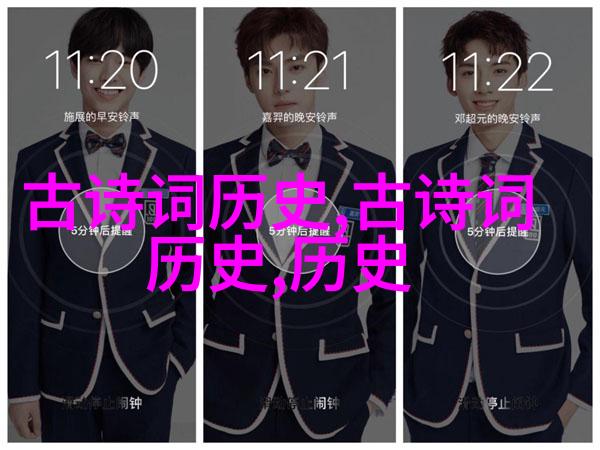宋代女性词人她们如何以诗歌展现心灵世界
在中国古代文学中,男性词人的名字如苏轼、柳永、晏几道等耳熟能详,而女性词人的声音则似乎被埋藏在历史的尘埃之中。然而,正是那些不为人知的女词人,用她们独特的情感和智慧,为我们留下了宝贵的文化遗产。今天,我们要探讨的是“宋词三百首完整版”中的女性词人,她们是如何用诗歌来展现自己的心灵世界。

宋代女性词人的背景
宋代社会虽然开放,但对女性来说仍然存在着一定程度的封建礼教限制。在这种环境下,许多才华横溢的女生只能把她的情感和想法化作诗文,将它们隐藏于家庭或宫廷之中。这些女士们并非全无名气,有些甚至影响力颇大,但他们创作出来的作品往往未能得到应有的重视。

女性内敛与隐喻
females' works often employed a more subtle and implicit style, with fewer explicit expressions of emotions. They preferred to use metaphorical language and imagery to convey their feelings, which added layers of depth to their poetry.

《相思》中的情愫
One example is the poem "相思" by Li Qingzhao (李清照). Although she was married twice and lived in different places, her love for her first husband remained strong throughout her life. In this poem, she uses the metaphor of a distant mountain range to express her longing for him:

绿水微流夜半静,

两岸落花纷飞轻。
山远天高月也老,
相思病深难自醒。
The imagery here creates a sense of melancholy and yearning that transcends time and space.
《秋声忆江南》中的怀念
Another example is the poem "秋声忆江南" by Wei Changxu (魏昌绪). Though not as famous as Li Qingzhao, Wei's poetry also reflects a deep sense of nostalgia for home:
秋风起兮云飞扬,
江上舟行梦断肠。
独坐幽篁悲翠霜,
怀旧泪滴长安墙。
In this poem, the autumn wind serves as a metaphor for separation from loved ones. The poet's homesickness echoes through time.
社会角色与个体身份
Despite being confined within traditional social roles such as wives or concubines, these female poets managed to maintain their individual identities through their writing. Their poems were not just about personal feelings but also about societal issues they faced.
婚姻与自由意志
For instance, some poems touch upon themes like marriage restrictions or limited freedom. In "菊黄莺啼谣曲", Wang Zhen (王禹) expresses frustration at being forced into marriage against one's will:
> 旧时王孙游东周,
> 王孙归今何处?
>
> 归去来兮丙丁日,
> 丙丁日复更无明。
Wang Zhen laments how women are treated like objects rather than individuals with agency.
亲密关系与独立精神
At the same time, there are poems that portray affectionate relationships between women while maintaining independence:
> 独坐幽篁思故园,
>
>
- 从《青玉案·元夕》
This line from Su Shi's (苏轼) own work shows his admiration for his friend Tao Youlan's independent spirit despite being deeply emotional towards others.
结论
Song Dynasty female poets left an indelible mark on Chinese literature with their unique perspectives on life and society. Despite facing numerous challenges due to gender limitations during that era,
they managed to craft works rich in emotionality yet nuanced in expression within Song Poetry Three Hundred Complete Editions.
Their voices may have been overshadowed by those male counterparts; however,
their contributions remain valuable testimonies reflecting human experiences across history – emphasizing both universal empathy and cultural contextuality alike.
These words transcend time boundaries: they speak volumes about resilience amid adversity,
and most importantly remind us all - regardless of our backgrounds or circumstances - we share common aspirations: understanding each other better
and celebrating our shared humanity together through art forms such as song lyrics & poetry!